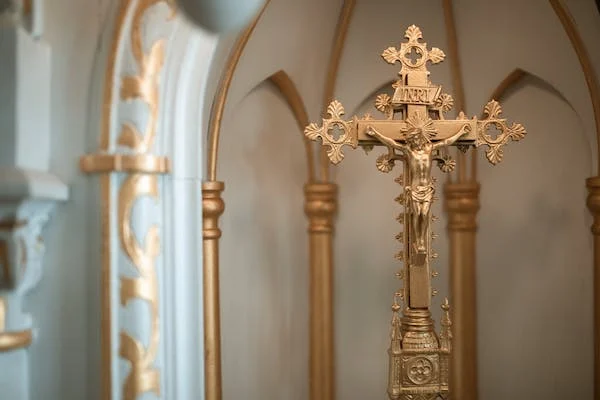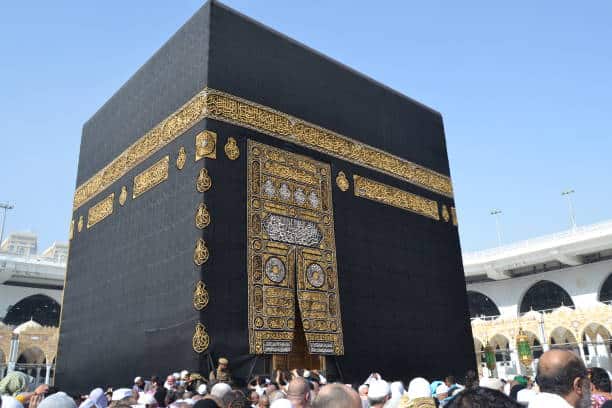The title of this article, Mohammed and Jesus: Why God’s Love is Much for Them, is not for individuals who are religiously biased or religious supremacists since the significance of the topic has no spiritual supremacy’s relevance to the original meaning of the content. The conversation revolves around a deeper understanding of God’s love for us and an honest acknowledgment of the necessity of reviving our faith. Unlike what most people would think, we might not specifically mention chapters or passages from the Bible or the Quran because the topic is inspired by pure inspiration and spiritual insight.
God’s last prophet, Muhammad, taught that the foundation of humanity’s relationship with God and the fundamental aspect of human existence is “love.” He served as an example of this teaching by treating both his own family and his followers with love and respect. Jesus, God’s word, and Bible revelations emphasize faith and love for humanity, inspiring the spirit of God to recognize love and faith as necessary conditions for divine existence.
Who is God, or Allah?
The words “God” and “Allah” have the same definitions and appellations, but they are praised differently in the Bible and the Quran. For this reason, the names will occasionally be used interchangeably in this article. The term “God Almighty” or “Allah SWT” alludes to the transcendent, all-pervasive truth that is not observable. God is immeasurable, eternal, all-pervasive, all-knowing, and all-powerful. God is all three of these things. True love, bravery, and freedom are some of the things he has given humanity.
God has a way of defining Himself for every living being He creates without having a specific definition that is universally associated with Him and specifically acknowledged by the entirety of creation as a whole. Similarly, no word should be so crucial to describing the Being who creates the universe as God. No other word is so ambiguous. This faith in Him gives a man the ability to escape challenges, and He is the soul of existence; everything else serves as the driving and creative force of existence.
In Islamic belief, God is a character in whom Allah is not only the universe’s ultimate authority but also the Spiritual Being in whom humans are to put their trust. This definition of God emphasizes its secular aspects while still having some religious overtones, and it offers a precise definition that can be used to explain God from a variety of religious perspectives. The world’s major religions continue to differ on a religious level, even though God is more closely associated with humans and the natural world in Islamic thought than in Western thought.
The divine title “the Prophets” is only applied to Jesus and Muhammad. God and man are like magnets for metals. Because of His immense power, He doesn’t need to declare Himself or His existence to the world. In reality, God could have given Himself any name He wanted. In addition to the name God chooses for Himself, there are a variety of other names for Allah. It is possible to compare Allah to God in one of two ways: either as God or as a different being. Allah is referred to in the Qur’an as the Exalted and the Most Holy (Allah is also known as God, but so is every other name for God that Islam mentions).
God’s Love For Jesus Christ

Why is Jesus such a treasure to Him? Because He loves Jesus with all of His heart, it is evident from this that the answer is a loud yes. Allah is the most powerful God in the universe, according to Jesus. He loves Jesus so much that it is a miracle from Him. From his trial to the cross, Jesus demonstrated how fervently and completely he loved God. Additionally, God’s love for him may be a result of his conception and birth. Jesus was crucified because he was born into poverty and weakness and humbly submitted to God’s will.
God wills the freedom and salvation of everyone He chooses, demonstrating His love for Jesus by becoming a man. Through the love and submission of Jesus, God demonstrates that He loves all people, not just His chosen ones. To carry out God’s work, Jesus on occasion disobeyed his parents by leaving their home and traveling with a group that included priests. Jesus, on the other hand, constantly carries out Allah’s instructions and fulfills his desires.
For the sins of those whom Allah loves, Jesus was put to death and endured suffering. “I have the power to lay down my life and take it up again,” Jesus claims in the Quranic interpretation of this incident. One can compare Mohammed’s and Jesus’ roles as those who encourage human love. Furthermore, he rarely worked miracles out of arrogance or to impress people because he was only focused on the task that Allah had assigned him.
Does this mean that Jesus was sent by Allah to fulfill his prophecy and become the Messiah? No, but to encourage all people to recognize and worship Allah. That is a wonderful and noble goal, that has never been achieved on this earth before or after Jesus arrived to accomplish a similar goal: to inform people about the presence of God and to point them in the direction of that God.
God’s Love For Prophet Mohammed

An outline of the Prophet Muhammad is as follows: He was the Islamic prophet and its creator. His early years were primarily spent as a merchant. He started receiving revelations from Allah at the age of 40, and these revelations eventually gave rise to the Koran and Islam. His grandfather and uncle raised him initially because his father passed away before he was born. He came from a Quraysh family that was dignified despite being poor.
The family was involved in the Meccan trade and politics. In that period, many tribes inhabiting the Arabian Peninsula were nomadic and traded products as they traversed the desert. Most tribes were polytheistic and worshipped a variety of deities. Mecca was a significant commercial and religious hub, with many temples and places of worship where devout worshipers could offer prayers to the gods’ idols.
He had brought most of Arabia under one religious rule by the year 630. Prophet Mohammed arrived to spread the same message that Jesus did, possibly finishing what Jesus had started. On top of that, Prophet Mohammed completed his task to proclaim the word of God, restore the Kaaba, and establish his rule over the entire Arabian Peninsula in twenty-four years, compared to Jesus’ three years of message-propagation.
We may easily conclude that the Prophet Mohammed had a difficult task because of Mecca’s high level of paganism, which coexists with its dominant religion, and the fierce flame of idolatry that has engulfed the city. God’s love is primarily focused on Mecca, and angels connected to it frequently appear as representations of revered love. Jesus’ message could not continue to be shared any wider than it had been for the previous three years, so something had to change.
For this reason, the Prophet Mohammed was chosen to carry on the mission in a region of the world where Judaism and Christianity have not yet made an impact. The Prophet Mohammed gained adherents in Mecca for a variety of reasons, many of which were not necessarily related to the distinctions between Islam and Christianity.
A great drought and hailstorms that caused famine, political unrest in Arabia as a result of this, and conflict between Arabs over access to water sources and grazing lands are just a few of the many factors that, according to many scholars, are highlighted in the prophet’s biography and made his task extremely difficult. This, together with the fact that he was outraged by the immoral and illegal behavior of the day, drove many people to him and helped him establish himself as a prophet.
Relationship Between Prophet Mohammed And Jesus Christ

Given that they are both prophets, the distinction is in the doctrines of their respective religions. According to the New Testament of Christianity, Jesus was born in the Israelite city of Bethlehem sometime between the years 6 and 4 BCE (by the Christian calendar). The Prophet Mohammed was born in Mecca sometime around 570 CE, according to Islam (the Islamic calendar). In contrast to Muslims, who see Mohammed as their prophet, Christians have long been told that they are the direct descendants of Jesus.
When it comes to their respective religions, the messenger is regarded as a direct descendant of God, while the people they serve are regarded as God’s followers, respectively. The Hebrew Bible (or Old Testament) never refers to Jesus as the messenger of God while he was still the messiah; rather, the name is only used after his death and resurrection.
Mohammed, on the other hand, is not specifically mentioned by name in the Qur’an until he has been dead for fourteen years. Additionally, the relationship between Mohammed and Jesus is extensively covered in the Quran. The earliest accounts of Mohammed’s life, known as the Hijra in both Islam and Christianity, are thought to be accurate accounts of his Mecca birth and early years before he ever lived in Medina.
Facts About Their Relationship in Both the Bible And Quran

The majority of the details in the Quran and the New Testament could be regarded as being accurate because they were recorded about a century later. Although Jesus is referred to as the “Seal of the Prophets” and thus “the last Prophet,” the Quran does not mention a messiah in its original Arabic translation. A new prophet was supposed to come after Jesus’ death and resurrection, according to some Muslim theologians, but the Quran foretells Mohammed’s arrival in the year AD 632 without making any reference to a messiah who would come before him.
In the New Testament, the term “messiah” was used to describe Jesus, and it is considered impermissible in Muslim culture to refer to him as anything other than a prophet. The Quran states that all people will assemble before Mohammed, the “King of the Believers,” earlier. The Prophet Mohammed, as all Muslims believe, was merely a prophet like Moses and Jesus, and Christians would refer to him as a “king,” but Muslims tend to use the word “teacher.”
Although Jesus Christ was a teacher and a leader, this does not mean that he did not live up to messianic expectations. Jesus’ predicted second coming was anticipated shortly after his death, as it had been for centuries. The Islamic Wikipedia entry does not mention a messiah during the lifetime of Muhammad, as some commenters have pointed out.
Who does God love most?

According to the Quran and the Bible, which provide evidence for the events surrounding man’s creation, Allah truly loved man by creating him in his likeness, making humans God’s replicas. Compared to all other creatures, he loves them the most. He loves people by creating them, and He doesn’t love them because of what they do, but because He loves them truly and dearly. For this reason, He gave man free will to choose between good and evil by creating him in His image, so that he could continually show them His unwavering and unadulterated love.
God gave His servants a divinely endowed faculty and capacity to feel His infinite love, which sets them apart from other beings in Infinitum and allows them to demonstrate their obedience and gratitude to Him. Allah purposefully gave the Prophet Mohammed and Jesus Christ human form to demonstrate his unwavering love for them and to aid them in the mission he assigned them. No angel could have completed tasks of this magnitude, and angels also serve to do messengers’ work for them.
They are the primary forerunners of the religion’s founding principle of Allah worship. The ultimate role models for all people are the Prophet Mohammed and Jesus Christ. These facts make it clear that Allah is deserving of praise and recognition as the Supreme Being in all of creation. Because of His importance and power to both the Islamic and Christian religions, Allah is therefore more deserving of worship.
The Principle of Worshipping Allah Or God
This part shall be divided into two according to the two most populous religions in the world. Therefore, we shall explain their system of worshipping God separately. These are the Islamic ways of worshipping Allah SWT and the Christian ways of worshiping God.
Islamic Way of Worshipping Allah SWT
Allah (SWT) never fails any of his creations, demonstrating his deep love for all of creation. There are specific instructions regarding worship and how one should interact with Allah. Muslims are the perfect representations of what it means to adore and serve Allah. First, all Muslims are required to uphold the five pillars of their faith. Every aspect of Muslim life has incorporated the Five Pillars of Islam as fundamental principles. The basic guidelines of Islamic behavior are represented by these five pillars: the declaration of faith (shahada), prayer (salat), almsgiving (zakat), fasting (sawm), and pilgrimage (hajj). Worship is emphasized as a crucial component of Muslim life.
Secondly, Islam mandates that all believers perform five daily prayers while awakened by the Adhan (the call to prayer), facing Mecca, the most sacred and secure location in each of their homes, by first performing ablution (the cleansing process). The Islamic prayers have procedures that must be strictly followed. Muslim men and women worship God, and they not only love and adore Him, but they also show how much they adore Him by prostrating themselves in worship. Muslims have special prayers for some significant days, such as the Jumat prayer on Fridays. After the required fasting period has passed, Muslims observe Eid ul-Fitr with prayer. Eid ul-Kabir, or Eid al-Adha, is observed yearly with prayer and a ram sacrifice.
Muslims incorporate prayer into their daily routine and base their worship of God on that. One of the Five Pillars of Islam is the Salah, and all holy prayers are in Arabic. The title alludes to a salat (prayer) in which Muslims recite Fajr, Zuhr, Asr, Magrib, and Isha at specific times of the day: before dawn, during lunchtime, after lunchtime, after sunset, and at dusk. Regardless of ethnic, regional, or sectarian differences, they are accepted by Muslims everywhere and all over the world. The holy month of Ramadan, which calls for giving up both food and drink and practicing extreme self-control, is when Muslim believers fast. Muslims are also not allowed to consume alcohol.
Christian ways of worshiping God
When compared to other religions, Christians worship God differently. All forms of worship are acceptable to Christians. You must have faith to worship, just as a Christian must have faith in the existence of God and his proximity to us. In addition to having faith that Jesus is still alive and that God can change His heart so that He can be saved and forgiven, a Christian believes that Christ is the only way to heaven. A Christian must have faith to worship, just as they have confidence that God exists and is also close.
Faith and heart are both necessary for worship in the Christian tradition. Christians should worship in the same way that everyone else does. The Christian must adhere to a holy law when worshiping God to practice godliness and gain power. Christians must read their Bibles and pray regularly. To offer worship, pay respect and obedience to God, and praise Him through prayer and worship, a person participates in and performs the prescribed action or prays in a set arrangement during a devotional or church service.
In contrast to the Islamic faith, the Christian faith is divided into distinct ceremonies, such as the baptismal service and the communion service, where people consume bread and wine and join Christ’s body for eternal life. A Christian should continue to live a holy and moral life after receiving the sacrament by doing so in the right manner. The church demands that its members regularly attend services to ensure that its adherents carry out what is expected of them.
All Christians, past and present, from all parts of the world, make up the body of Christ. Bishops, who supervise other bishops and ordain priests and deacons for continued service, make up the hierarchy of the church. Bishops perform baptisms and provide the services required for the remembrance of Christ and his love for his followers. Popes are the leaders of the church when it is referred to as the Catholic Church of Christendom. Archbishops are the leaders of a group of bishops and the global church.
Conclusion
According to various hadith, Allah is referred to in the Quran as a “friend of humanity.” If people understand and acknowledge that He is their friend, they should be aware that they are free to approach Him and give prayers. Also, God loves and protects all people equally, but humans are unable to truly understand this due to their estrangement from Him. If we look closely, we can see that most of the book’s events and tragedies are caused by the decisions these individuals make or do not make.
The Quran describes Allah as a “friend of humanity,” a description supported by a multitude of hadiths. Those who can understand and acknowledge that he is their friend ought to know that they are welcome to come to him in prayer. Also, God loves and guards all people equally, but because of their separation from Him, humans are unable to comprehend this. If we pay attention and look closely, this is what leads to most of the events and tragedies in the book.
Events and tragedies in the book are brought on by the choices the characters make or do not make. God’s most defining quality is love. He demonstrated a great deal of love and tolerance in addition to taking his followers with him on a long journey to a barren land. The Israelites’ journey to the promised land under the leadership of Moses serves as another illustration. God commands Moses to lead his people to Canaan, the Promised Land, following ten years of wandering and tribulation in the desert. They eventually reached the Promised Land, though, through Joshua.
naturally like your web site however you need to take a look at the spelling on several of your posts. A number of them are rife with spelling problems and I find it very bothersome to tell the truth on the other hand I will surely come again again.
I appreciate your insight and genuinely believe you to be a trustworthy person who can speak the truth. To address some of these errors, I will start a site audit of the whole website. Once again, thank you very much.